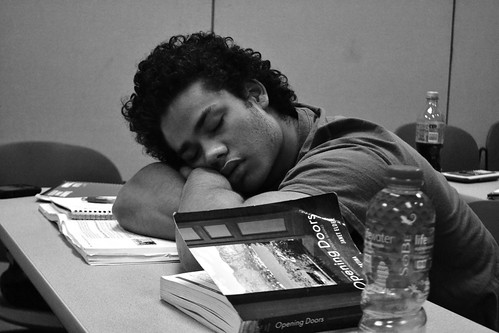
College students are tired of sleeping, according to a BBC interview with Catherine M. Coveney. She’s a British sociologist who recently explored the sleeping practices and subjective sleep experiences of two notoriously sleep-deprived groups: shift workers and college students. After conducting 25 semi-structured interviews with individuals dispossessed of rest, she concludes that our social context impacts how we understand the meaning of sleep and how we manage our sleeping schedules as a result.
The hospital-based doctors, nurses, police officers, call center employees, and other shift workers Coveney interviewed describe actively managing their sleep schedules around work patterns, finding childcare, and spending time with their partner. It is something that is constantly at the back of their mind. To illustrate why they view “broken sleep” as part and parcel of the job, Coveney explains how sleeplessness is built-in to the work structure:
There are some occupations where nothing is sanctioned…. The two nurses that I spoke to, they had to work waking nights. So even on their break, they weren’t allowed to go to sleep during the night. That’s not to say it didn’t occasionally happen, but that it was not a sanctioned practice. That was something that was seen as going against the rules of their profession.
On the surface, the sleep patterns of the college students look identical to the shift workers: “They did describe a kind of similar pattern; they did describe taking naps during the day, having a shorter sleep at night, having a two hour nap the next day.” Yet because they see sleep as an “expendable luxury,” they don’t view their own erratic sleep as “broken.” According to Coveney, for the college students,
…it was more flexible, it was more their choice, so in a sense they were customizing their sleep patterns to fit around their social activities…. I suppose it was seen as disposable in a sense, they could cut back on sleep if they chose to, they could indulge in sleep if they chose to.
Although both groups thought of sleep in functional terms—the necessary amount determined by what was needed to get them through what they had to do the next day—Coveney reports, “None of the students I spoke to said they would prioritize a night in bed because they thought they hadn’t had enough sleep. If there was something else they wanted to do, they‘d do that. And they’d catch up later, they’d sleep longer the next day, they’d take a nap…. Some of them did go as far as to say if they could get rid of their need for sleep, it would give them much more time to do other things.” Even the value of sleep depends on supply and demand.
To learn who else is getting more sleep than you are, check out these TSP classics on the gender sleep gap and on segmented sleep.

Comments